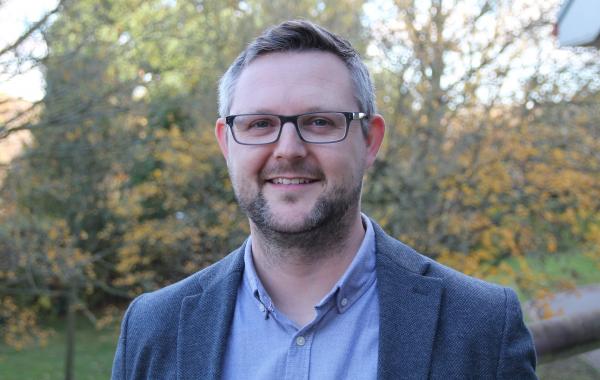This can be due to maths anxiety or a lack of confidence in their maths abilities. Others say they simply lack the self-belief that they can do it. And it’s not limited to the people we work with – a recent study of UK adults found that over a third of them say that doing maths makes them feel anxious, while one in five are so fearful it makes them feel physically sick. Maths anxiety really is an issue for so many.
Blog
Mental Health and Maths – From Negative to Positive Cycle
10 Oct 2023
By Iain Evans, National Numeracy Training Officer
As part of the Training Team here at National Numeracy, I talk to a wide range of adults on a regular basis – from parents of primary school children to staff in NHS trusts, workplaces and school staff, across a number of local authorities UK-wide. While working with them on confidence building and positive mindset training, so many of them have told us that they struggle with maths.

The Negative Cycle
The biggest problem with feeling that you’re ‘not good enough’ to use maths, or work at improving your skills, is that it can create a damaging negative cycle, which can be difficult to break. In these cases, people feel like they’ll ‘never get it’, and put in less effort to whichever maths task they are faced with at the time.
Many people have told us they’ve tried hard to avoid these tasks or have given up on a situation entirely – sometimes even leaving a job role or avoiding applying for new roles or promotions. This too is reflected in wider research, with over a third of adults saying they would be put off from applying for a job role if it involved numbers or data, and a fifth believing their lack of confidence has affected career choices and impacted their earnings. This mindset is very likely to decrease motivation and performance, and create negative thoughts in someone about themselves, lowering their confidence and self-esteem – not just with maths, but throughout their life.

What Do We Do?
Where do we get started on helping people with their maths? Well, we just get them talking!
Our sessions begin by asking the question “How do you feel about maths?”, which helps them open up about their anxieties and realise that there are many varied mindsets around maths, and they certainly aren’t alone in their feelings.
This is the first of our top tips on ‘Overcoming Maths Anxiety’.
Tip 1: Talk about it - talk about your feelings and realise you're not alone.
Tip 2: Take the pressure off - learning is not a race, so take your time!
Tip 3: Set realistic goals - aim to improve a little at a time.
Tip 4: Challenge your own beliefs - are your thoughts about maths helpful?
Tip 5: Don't compare yourself to others - we all learn differently and that's ok!
Tip 6: Choose resources that work for you - learn in a way that works for you
Positive Maths Mindsets
We also encourage the people we support to use a growth mindset, so they can overcome any setbacks and keep learning and working hard at improving their maths – using mistakes as a positive step on their learning journey.
Once they start to see success in the ‘little wins’, they begin to create a positive cycle. This leads to further motivation and success, telling us that “the more we do, the more we can do”.

Number Confidence Week is back for 2024
If we can feel more confident with numbers, we will use them to make better decisions with money, to get on at work and to help our children with their learning. Join us 4-8 November and kick-start your confidence!







